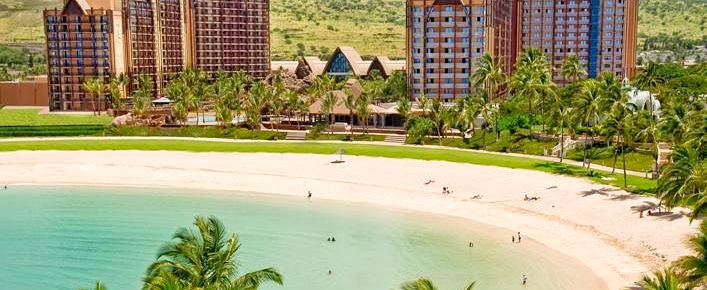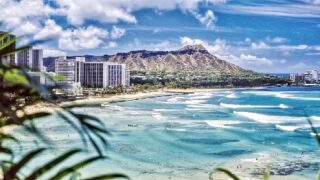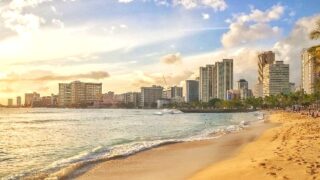Hawaii remains a dream destination for ten million visitors every year, but for many, the escalating costs of traveling to the islands have become a major frustration. From skyrocketing hotel prices to inflated airfares, many travelers wonder and comment about where to place responsibility for these rising expenses and, more importantly, how they should direct their complaints.
Breaking down the cost increases of Hawaii vacations.
Before diving into where you should cast blame and who to complain to, let’s look at the primary sources of Hawaii’s high travel costs:
- State taxes and visitor fees: Hawaii has an infamous 18% Transient Accommodations Tax (TAT) on hotels, vacation rentals, and timeshares, which significantly increases the cost of lodging and remains among the highest in the nation. State fees are also assessed on visitors and the specter of an upcoming Green Fee.
- High hotel rates: Most large hotels are owned and managed by corporations outside of Hawaii, where profit maximization motives outweighs local concerns. Average nightly rate vary significantly by the island, and range from the $200’s in Honoulu to well over $500 on Maui. Featured image is of Aulani on Oahu, where prices start in the mid-$500’s.
- Cost of airfare: Due to Hawaii’s remote location, flying costs have increased significantly, with airlines facing higher operational costs and limited competition on many routes. At the same time, last week there was a buy one get one free offer for Hawaii flights, proving that relatively good deals still happen.
- Other expenses include restaurants, shows, activities, and services. High operational costs for local businesses include increased shipping costs, greater labor expenses, and other unique challenges associated with Hawaii that are passed on to customers.
What visitors are saying on Beat of Hawaii.
As rising costs continue to impact travel to Hawaii, many long-time visitors have voiced concerns about the state’s pricing and the overall experience. Below are just some of the recent comments from our readers:
Maui’s rising costs drive loyal visitors away.
One reader shared how they have come to Maui every year but now find themselves searching for cheaper alternatives on other islands. They remarked, “Not the best way for Maui to recover. Lowering prices would be better to entice people like myself to return to Maui.“
Another long-time visitor, James, mentioned how, after 20 years of annual trips to Maui, they decided to try Tahiti due to the rising costs and unfriendly attitude they’ve encountered. They reflected, “Perhaps one day the local government will realize that they went too far with their fees and tourist gouging. Sadly, I feel it will be too late as folks like us move on to more enjoyable, drama-free vacations.“
Frustration with taxes and surcharges.
Many readers have expressed frustration over Hawaii’s high taxes and fees. Bob described the impact of surcharges on restaurant meals and room taxes at timeshares: “Surcharges on almost all restaurant meals… still the expectation of a tip. Over days, that adds up. Car rental prices are still high after COVID. We are hit with about an 18% room tax.“
Melissa said, “As a resident, I love our state, but I do not support the price gouging that has taken place since COVID. Hawaii and also Las Vegas need a wake-up call in relation to surcharges. The prices are absolutely outrageous.”
Harriett expressed similar disappointment, noting how “flights and condo taxes” have made it difficult for them to enjoy their time in Hawaii. They have even considered skipping activities altogether: “We may have to stay at the condo and swim in the pool. Do they charge more for that too?“
Priced out of paradise.
For some, the rising costs mean they can’t afford to return. Robert was disappointed, saying, “Sadly, I am priced out. The costs skyrocketed and the trips to Hawaii are now just too expensive for me. I can’t believe the cost increases but it is what it is. I am fortunate to have experienced the islands so many, many times and over so many years so it is sad not to return.“
A humorous take on Hawaii cost hikes.
Mike added a lighthearted, humorous perspective, reflecting on his just-completed trip to Hawaii: “Interestingly, after returning from my latest trip to the islands, I was feeling like I had lost weight. I thought that all the hiking had been beneficial. So I weighed myself. It turned out it was just that my wallet was empty.“
Hawaii grocery prices are shocking even for long-time visitors.
Gary, a reader who had just arrived in Kauai for a multi-week stay, shared the surprise of visiting a local grocery store: “Went out to get some groceries and nearly staggered when I arrived at the milk cooler. Prices per gallon ranged from $7.99 to well over $10!” Even something as simple as grabbing a burger was expensive with prices at a local chain leaving him stunned. See Surging Hawaii Fast Food Prices Amplify Travel Costs.
Price gouging, together with changing attitudes, alienates visitors.
Many visitors have pointed out how the experience of visiting Hawaii has changed drastically. Jen shared, “This will be our last trip to Hawaii sadly… if the trip wasn’t already paid for, we’d cancel and go somewhere else. The animosity, anger, and price gouging is a big turn-off… we will spend our hard-earned money on other islands that appreciate people coming to support their economy.“
LJ commented on how Hawaii’s high costs make it difficult for travelers to justify the expense: “Everyone I have ever known has to plan and save, sometimes for more than just one year to come here. No one I know anymore wants to risk years’ worth of savings and the only 2 or 3 weeks they can all take off of work.” They suggested that the Hawaii Tourism Authority (HTA) should do more to explain why the cost of visiting Hawaii is so high and what tourists can expect.
Looking elsewhere for better value.
Like Ernie, other readers have begun comparing Hawaii to different destinations. “The D.R. is every bit as beautiful as Hawaii ever will be, without any gouging fees. Competition is what differs between Hawaii and most other destinations,” Ernie remarked, pointing to how other locations are doing a better job of managing tourism without price hikes.
Mark added his frustration with Hawaii’s tendency to add extra fees: “After charging tourists extra fees on rental cars to fix roads that never get fixed, gouging them ridiculous extra bogus taxes on hotel rental and timeshare usage… what’s next, a $1 a head per tourist for chicken abatement?“
Who should you direct complaints to?
The issue: The state’s 18% occupancy tax is one of the highest in the nation and contributes significantly to the cost of lodging.
Who to complain to: If you feel that this tax is unfair or excessive, complaints should be directed to Hawaii’s state government, particularly to legislators and tourism authorities.
Hawaii Tourism Authority (HTA): The HTA plays a central role in managing tourism and visitor experience. They are also a good starting point for feedback on broader tourism policy.
Hawaii legislators: You can contact elected officials in Hawaii to express your thoughts on tax policies that affect tourism costs.
Where to complain: Links and resources for contacting Hawaii state legislators and the HTA are available on their official websites.
Corporate Hawaii hotel chains regarding pricing and fees.
The issue: Most of Hawaii’s major hotels are owned and managed by corporate entities based outside the islands, and their pricing strategies reflect global corporate goals rather than local economic realities. Resort and other fees and inflated room prices have become two of the most common complaints.
Who to complain to: If hotel rates and fees feel unreasonable, you can direct feedback to corporate headquarters. These companies have consumer feedback systems and may respond to customer complaints when presented effectively. Remember, too, that the management company is generally not the property owner. They are merely hired for marketing and management.
Where to complain: For management companies, major hotel chains such as Hilton, Marriott, and Hyatt typically have dedicated customer service portals on their websites, where feedback is reviewed and often leads to action. For owners, do an online search to determine the ownership of a particular property.
Airlines regarding high Hawaii airfares, ancillary fees, and other issues.
The issue: The cost of airfare to Hawaii, having surged in recent years, is another source of great irritation for many. That is exacerbated by limited competition on certain routes and a range of ancillary fees. With airlines controlling much of the Hawaii visitor experience, travelers often feel stuck paying high prices with few alternatives. Many flights departing Hawaii are changing to “red-eyes,” which is also frustrating to some while benefiting others.
Who to complain to: If airfare prices seem excessively high or there are complaints about fees, service, delays, or transparency, the best place to direct complaints is to the airline directly or through federal regulatory bodies.
Where to complain:
- Airlines: The airlines servicing Hawaii have customer service teams that review and respond to issues. Check for them on the respective airline websites.
- U.S. Department of Transportation: If you believe that airline service or pricing violates federal guidelines, you can submit a complaint to the U.S. Department of Transportation (DOT).
Locally owned businesses have high costs for goods and services.
The issue: Many local businesses, from boutique hotels, and restaurants to activities and shops, face high operational costs due to a myriad of issues. While this results in higher prices, it’s important to understand that many local business owners are not profiting excessively even with these high costs despite the appearance to the contrary.
Who to complain to: Local businesses generally welcome direct feedback if you experience service issues or have other complaints. However, remember that many are doing their best to stay afloat in a challenging economic environment.
Where to complain: Direct feedback through the business website or in person with management often leads to better understanding and, sometimes, changes.
The bigger picture: Hawaii tourism and the state’s economy.
Hawaii’s dependence on tourism is a double-edged sword. On one hand, it fuels much of the local economy, from jobs to infrastructure. On the other hand, visitor demand places stress on resources.
It’s also important to note that Maui, still recovering from the 2023 wildfires, has struggled to balance tourism recovery with keeping prices reasonable. Visitors to Maui may find higher costs as the island rebuilds, further complicating the affordability issue.
Are there constructive ways to make a difference?
While complaints about costs are valid, there are also ways to support Hawaii and help shape a more sustainable and resilient tourism industry in the future:
- Use direct channels to provide feedback. Feedback left with Hawaii hotel management, state government, airlines, or others tends to reach decision-makers more effectively than via social media.
- Support local businesses: When possible, opt for locally owned accommodations, activities, stores, and restaurants. This keeps more of your spending in Hawaii and helps the local economy more than large corporations.
Conclusion about sky-high visitor expenses in Hawaii.
High prices in Hawaii are driven by many factors—state taxes, corporate pricing, airfare costs, and operational challenges for local businesses, among them. Understanding who to complain to and about and how to voice your concerns can help travelers achieve a more meaningful impact. Reaching out puts travelers directly into the conversation, which helps mold Hawaii travel for the future.
Get Breaking Hawaii Travel News







The laws of supply and demand apply in Hawaii just as anywhere else. Nobody is raising prices to the detriment of their businesses. So, if you want someone to blame, it’s all the people either richer than you, or more willing than you to spend their limited money on a trip to Hawaii. It does appear Maui is bumping up against the maximum prices they can charge but they are just doing what anyone in their position will do. That’s true of the government too – they charge more tax because they can.
Supply and demand aren’t really laws, and only apply if there aren’t motivations or pressures outside of profit. In San Francisco, office space prices have been kept artificially high, despite high vagrancy rates, so that the value of real estate on paper is higher, allowing companies to apply for larger loans. S&D is just a simplistic model that captures a non-insignificant amount of activity.
Quit paying it. I see people state soaring prices but still continue to travel Who wins the hotel. Do you ever notice on National walk to work day that gas prices go down 5-10 cents a gallon. Same thing. Now that tourists are down in Maui didn’t people comment on some hotels offering discounts to fill the occupancy issues. Same thing. Prices will never go down until the demand for tourists goes up.
You should try holidaying in Hawaii traveling from New Zealand. A poor dollar and $1300 insurance cost. Getting well beyond reach for most Kiwis.
Too many people and limited resources equals higher prices.
Even politicians can’t change the law of supply and demand.
I asked a local one time when I was riding the bus back from the north shore. “How can anyone afford to live and reside here? She replied most residents she knows gets disability, state disability, state housing assistance or has won some sort of lawsuit settlement. IMO this might be why the state requests all the taxes and fees with tourists and STR owners wondering where is all the tax money going?
Hawaii’s Unemployment Insurance is also lucrative, but as of 2023 upside down by over $500,000.000! Going back to the 1980’s, the homeless lived under the bridges on the Nimitz, going to Honolulu. Sadly, in Waikiki, the Foodland is just off Princess Kaiulani and Kuhio, matters not, any time of the day, barefoot vagrants walk the street, open sores on their bodies, and then Governor Ige did nothing, this just blocks from their most prestigious Steakhouse, Hy’s. Their Covid Relief Subsidies were still being paid long into 2023, which had people’s incomes artificially doubling, even after Lockdown.
We have been coming to Hawaii once or twice a year since 2008. Nothing has increased like the price of the hotels. Many rooms are more than double of pre-Covid prices on Maui and the Big Island. There was a nice dip in late 2019 and 2020, but since then it’s just skyrocketed. We will be back this November, but if this pricing trend continues, we have to question if we can afford to return next year.
The best way to complain is to stay away.
Eventually they will get the message.
Its part of the plan raise everything creates less visitors to the islands yet the states income remains close to the same…
Aloha Jeff & Rob-
I would think as residents you two would have a better perspective than most of us about whether the aloha spirit is fading. I am a frequent visitor to your island and have noticed a bit of this but not too much. What do you think?
thanks
This is a simple case of supply and demand. Hawaii as a destination is a limited commodity and people/companies/government will charge whatever they can to maximize profits. That results in lower demand. It is all driven by consumers. Enough consumers leave and the prices will be adjusted down to the point that it maximizes profits.